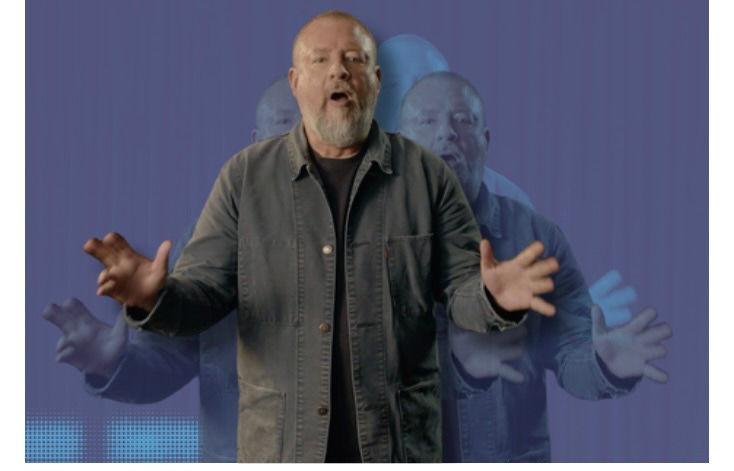🎧 Shane Smith is Ready to Talk Media. Again
Out of semi-retirement, Vice's co-founder returns with a podcast into a dire media landscape: "I'm essentially Michael Corleone...I hope it's not 'Godfather III'"

“I'm essentially Michael Corleone . . . I hope it's not Godfather III.”
So says Shane Smith during our conversation last week, explaining his emergence from semi-retirement to host a new podcast, Shane Smith Has Questions, launching Oct. 8.
Now 55, he is initially reluctant to talk about what went wrong for Vice — and then is unsparing.
“Fuck big platforms, fuck big advertisers. They killed us in the long run.”
And what of CEOs like Rupert Murdoch and Bob Iger who invested and lost tens and hundreds of millions respectively in Vice?
“They didn’t cover their bets . . . Nobody’s pulling the wool over their eyes about anything.”
And media companies today like Murdoch’s own News Corp. and The Atlantic that have made deals with OpenAI?
“Deals with the Devil.”
To recap: At its peak, Vice had a valuation of $5.7 billion, two shows on HBO, 2,600 employees in more than 30 countries, and was the 10th most valuable private company in America. Its cofounder and CEO, Smith was a master of the sale, particularly when it came to making old guys feel young, and it wasn’t long before Hollywood’s legacy CEOs — as hungry for solutions a decade ago as they are now — jumped in.
Murdoch was first, trying to chase then-elusive millennials by pouring $70 million into Vice at a $1.4 billion valuation. Next came $400 million from Disney’s Iger, at a valuation estimated to be between $4.2-$4.5 billion (Disney’s Kevin Mayer became a Vice board member alongside James Murdoch). A&E Television Networks CEO Nancy Dubuc turned over cable channel History 2 to Smith to become Viceland, and thus secured her own board seat as well. The Vice on HBO news show won two Emmys and 12 total nominations; and Charlottesville: Race and Terror, documenting the infamous white supremacist march, took home a Peabody and four Emmys.
But there was chum in the water as sharks prepared to jump. Vice staff unionized after the high-flying Smith appeared on the cover of WSJ magazine, flaunting his new $23 million house immortalized in Beverly Hills Cop. The ad market melted for scaled digital media, whose reliance on web traffic from big tech search engines and social media platforms backfired. In June 2017, the $450 million TPG invested at an all-time high valuation of $5.7 billion sounded too good to be true — and was.
A poisoned chalice, the deal’s onerous terms included regular payments to TPG worth up to nearly $400 million in stock and cash dividends between 2020 and 2024, a crushing debt that eventually sank the company. But not before the New York Times published details of sexual harassment, misconduct and payouts at Vice. (Smith apologized and was never personally accused of wrongdoing). Shortly after, Smith stepped down as CEO, turning the reins over to Dubuc. In May 2023, the company filed for Chapter 11 bankruptcy; its collapse is the subject of an Eddie Huang documentary that debuted at the Toronto Film Festival in September.
Six years since leaving his seat, Smith has reemerged at a radically stripped-down Vice, owned by Fortress Investment Group, which purchased it for $350 million in 2023. Returning as Vice News’ editor-in-chief, Smith is hosting his new podcast, produced with Bill Maher and his production company, Club Random Studios. It launches with an episode about the assassination attempts on President Trump and the so-called Deep State.
I had only met Smith once before our Oct. 3 conversation. He and I had been on a panel in 2014, along with the Washington Post’s then-editor Marty Baron, Vox Media CEO Jim Bankoff, and The New Republic’s then-owner, Chris Hughes. All of us were among those lucky to have found varying degrees of success and attention in media in the aughts and teens, an era when you could, and also one where the grim state of today’s landscape would have been unfathomable.
In his only interview to promote his podcast’s debut, Smith is initially hesitant about going into Vice’s history, calling it the price he has to pay for discussing what he wants to today. He has a point, stories of yesterday’s media are like reading stone tablets: The oldest millennials are now middle-aged, Elon Musk creates AI representations of Kamala Harris as a Communist, and the ever-shrinking world of journalism and traditional entertainment is in its biggest financial trouble in history. In our conversation, I ask if he wishes he had merged Vice with BuzzFeed and Vox Media when it was an option; his regrets, if any, about taking all that investment; and exactly whom he blames for Vice’s demise.
He also has derisive words for the Writers Guild and the impact of its strike (“people who are staring the end of their existence in the face”), the future of the New York Times, and AI’s existential threat to entertainment and all media. He delivers a dire picture of what media is in 3-5 years, and who’ll actually survive in a world where new rules include, as he says, “If Elon Musk says it and [Joe] Rogan retweets it, it becomes law.”
The conversation is edited for length, and also appears in audio form on The Ankler podcast feed:


